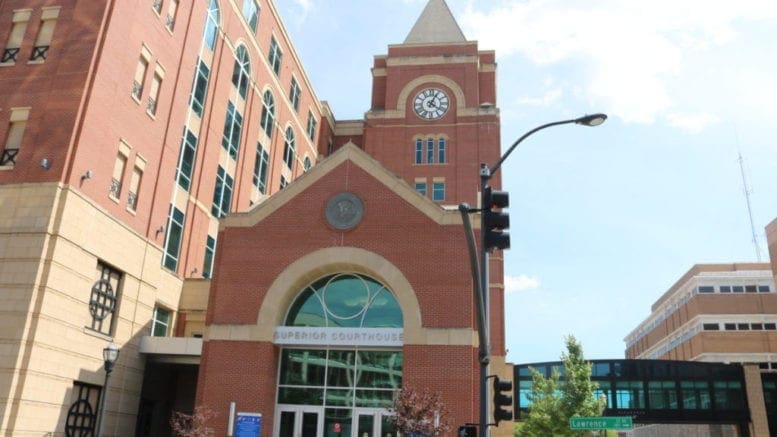Judicial elections are among the most important races in any election cycle, yet they are among the hardest for voters to research prior to casting ballots.
This article will provide a starting point for learning about Superior Court and how to research the candidates.
There are two contested Superior Court elections on May 24. Since Superior Court is a nonpartisan seat, if no candidate gets a majority of votes in one or both the contests there will be a runoff on June 21.
The winner of the election will either be decided in the May 24 election (if a candidate receives more than 50 percent of the votes) or in the runoff. There will be no Superior Court races on the November ballot.
Five candidates are running to fill the seat of Judge Robert Flournoy III, who is retiring.
| Candidate | Occupation | Campaign website |
| Sonja N. Brown | Judge | www.judgesonjabrown.com |
| Daniele Johnson | Attorney | danieleforjudge.com |
| James K. Luttrell | Attorney | www.votejamesluttrell.com |
| Taneesha Marshall | Attorney | www.votetaneeshamarshall.com |
| Gerald Moore | Attorney | www.mooreforcobb.com |
Two candidates are challenging Chief Judge Robert Leonard. Here are the candidates for that race:
| Candidate | Occupation | Campaign website |
| Rob Leonard | Cobb Superior Court judge | www.judgeleonard.com |
| Charles Ford | Public defender | www.fordforjudge.com |
| Matt McMaster | Lawyer | mcmasterforcobb.com |
What is Cobb County Superior Court?
In Georgia, the Superior Court is one of three trial courts found in each judicial circuit. The other two trial courts are State Courts and Probate Courts.
If you watch TV or movie courtroom dramas you’ll be familiar with the most high-profile role of this particular court. Superior Court in Georgia would be the court where a murder trial would be conducted.
So the Cobb County Superior Court conducts felony trials.
But it also handles a number of other types of cases.
The Georgia Superior Courts website describes the varied functions as follows:
The Superior Courts of Georgia is a court of general jurisdiction handling both civil and criminal law actions. Superior Court Judges preside over cases involving misdemeanors, contract disputes, premises liability, and various other actions. In addition, the Superior Court has exclusive equity jurisdiction over all cases of divorce, title to land, and felonies involving jury trials, including death penalty cases.
How are Superior Court judges chosen?
Superior Court judges are elected for four-year terms in nonpartisan elections. If a judge resigns or retires the governor appoints a replacement to serve out the judge’s unexpired term.
The requirements to run for a Superior Court seat are that the candidate be at least thirty years old, has been a Georgia citizen for at least three years, and the candidate must have practiced law for at least seven years.
What judges are currently on the Superior Court in Cobb County?
Cobb County has eleven Superior Court judges;
Robert D. Leonard II is the Chief Judge.
Two judges are retiring: Mary Staley Clark and Robert E. Flournoy III.
The election held to replace Judge Flournoy will be on May 24, and Judge Clark’s replacement will be appointed by Gov. Brian Kemp.
The other judges are:
Judge C. LaTain “Tain” Kell
Judge Gregory Poole
Judge Ann B. Harris
Judge Kimberly A. Childs
Judge Kellie S. Hill
Judge Angela Z. Brown
Judge Jason D. Marbutt
Judge Henry R. Thompson
How do I learn about Superior Court judges before elections?
Judicial races are among the most difficult elections for the public to research, but the internet has made it easier.
For Cobb County judicial elections there are a number of media that cover the courts and candidates, including the Cobb County Courier, the Marietta Daily Journal, the Atlanta Journal Constitution, and East Cobb News. All have search tools, and you can search either on individual candidates names, or just do a search on “Superior Court.”
For biographical information you can visit this page on the Cobb Superior Court website.
You can also visit the campaign web pages of the candidates. Biographies on campaign websites are of course written to put the candidate in the best light, but it’s a good starting point for determining the candidate’s educational and employment background. You can also learn about their judicial philosophy by a careful reading of what the candidate emphasizes in their campaign materials.
To get lists of the candidates in any election cycle, you can visit the Georgia Secretary of State page for qualified candidate information at https://sos.ga.gov/qualifying-candidate-information
Superior Court is considered a state office, so you would select “State” on the Office Type pulldown menu, the General Primary/Special Election under the Election menu, and “Non Partisan” under the Party menu. Then under Offices scroll down the pulldown menu until you find the race you’re researching.

I appreciate your great organization of information regarding the Superior Court function and judge candidates. I’m waiting for the sample ballot to be posted before doing my research. When it’s available, Cobb County will post it here: https://www.cobbcounty.org/elections/voting/election-day